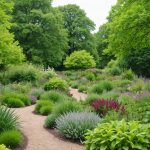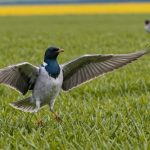Slugs can wreak havoc on your garden, but protecting these pesky invaders shouldn’t come at the expense of vulnerable hedgehogs. Discover eco-friendly methods to keep slugs at bay while ensuring the safety of these delightful nocturnal creatures. From natural repellents to innovative barriers, find out how you can safeguard your plants and support local wildlife harmoniously. Embrace a garden that thrives, free from harmful chemicals and harmful impacts on hedgehogs. Transform your gardening experience today!
Understanding the Importance of Hedgehogs in the Garden
Hedgehogs are small but mighty allies in maintaining a healthy garden ecosystem.
A découvrir également : Choosing the Best Bedding for Your Guinea Pig’s Home: A Guide to Safe Options
Role of Hedgehogs in Pest Control
Hedgehogs are nature's pest control experts. They primarily feed on insects and invertebrates, such as slugs, beetles, and caterpillars. By doing so, they help manage garden pests naturally, reducing the need for chemical interventions. This not only benefits your plants but also contributes to a safer environment for all wildlife in the garden.
Importance in the Ecosystem
The presence of hedgehogs signifies a balanced ecosystem. They contribute to biodiversity by controlling pest populations that might otherwise become overwhelming. Furthermore, hedgehogs serve as prey for larger predators, thus playing a crucial role in the food chain. Their activities help aerate the soil, promoting healthier plant growth.
Lire également : Exciting Enrichment Ideas to Banish Boredom in Pet Ferrets
Threats from Traditional Slug Control Methods
Traditional methods to combat slugs, such as slug pellets, pose significant threats to hedgehogs. These chemicals can be toxic, leading to a decline in hedgehog populations. To protect these valuable creatures, consider using alternative, hedgehog-safe methods like beer traps or copper tape.
- Hedgehog Safety: Prioritize non-toxic pest control.
- Garden Ecosystem: Embrace natural solutions.
- Wildlife Conservation: Support biodiversity efforts.
By understanding and supporting hedgehogs, you enhance both your garden's health and the broader wildlife conservation efforts.
Environmentally-Friendly Slug Control Methods
Embrace sustainable practices for a healthier garden.
Natural Slug Repellents
Natural slug deterrents offer a sustainable approach to garden management. These methods not only protect your plants but also ensure the safety of beneficial creatures like hedgehogs. Common options include beer traps, which attract and trap slugs, and copper tape, which creates a barrier slugs are reluctant to cross.
Benefits of Organic Methods
Using organic gardening techniques enhances biodiversity. By avoiding harmful chemicals, you preserve the delicate balance of the ecosystem. Organic methods promote soil health, ensuring that plants thrive without the risk of toxic exposure to wildlife. This sustainable approach also supports the broader goals of wildlife conservation.
Comparison of Eco-Friendly Methods
When evaluating the effectiveness of various sustainable practices, consider the following:
- Beer Traps: Effective for small gardens; requires regular maintenance.
- Copper Tape: Long-lasting and non-toxic; best for raised beds.
- Eggshell Barriers: Inexpensive and biodegradable; less effective in wet conditions.
Each method has unique benefits and limitations. The key is to select a combination that aligns with your garden's specific needs. By integrating these natural slug deterrents, you contribute to an environmentally-friendly ecosystem while maintaining effective pest control.
Creating a Hedgehog-Friendly Garden
Designing a garden that welcomes hedgehogs can enhance biodiversity and support wildlife.
Key Elements of a Hedgehog-Friendly Garden
To foster a wildlife-friendly gardening environment, incorporate elements that cater to hedgehogs' needs. Ensure your garden has plenty of low-growing shrubs and hedges, as these provide natural shelter. A small pond or water feature can also attract hedgehogs, offering them a source of hydration.
Providing Shelter and Food for Hedgehogs
Creating a habitat involves more than just shelter. Ensure a steady food supply by planting native flora that attracts insects. This encourages a natural food chain, supporting hedgehog diets. You can also supplement with specialized hedgehog food or cat food (non-fish based).
Bulleted List:
- Shelter Options: Log piles, compost heaps, hedges
- Food Sources: Native plants, insect-attracting flowers
- Water Features: Shallow dishes, small ponds
Importance of Avoiding Harmful Chemicals
Avoid using harmful chemicals like pesticides and slug pellets. These can be detrimental to hedgehogs and disrupt the garden's ecological balance. Opt for organic gardening techniques and natural pest control methods to maintain a healthy, wildlife-friendly habitat. By prioritizing these practices, you contribute to a sustainable and thriving garden ecosystem.
Specific Strategies to Repel Slugs Safely
Implementing effective and safe slug control methods can preserve your garden's ecosystem.
Barriers and Traps
Physical barriers are a practical method for safe slug control. Using materials like copper tape or crushed eggshells can create effective deterrents. These barriers are non-toxic and do not harm hedgehogs. Position them around vulnerable plants to prevent slug access.
When using traps, ensure they are hedgehog-friendly. Beer traps are a popular choice but require careful placement. Position traps in areas inaccessible to hedgehogs to avoid unintended harm. Regularly maintain and empty traps to keep them effective.
Companion Planting
Companion planting can naturally deter slugs while benefiting hedgehogs. Plants like garlic, chives, and mint are known for their slug-repelling properties. Integrate these into your garden to reduce slug presence. This method also supports hedgehogs by attracting beneficial insects.
Bulleted List:
- Garlic: Strong scent repels slugs
- Chives: Deters slugs, attracts pollinators
- Mint: Aromatic barrier against slugs
Environmental Modifications
Adjusting garden conditions can further discourage slugs. Reducing dampness by improving drainage makes the environment less appealing to slugs. Create microhabitats such as log piles or leaf litter to support hedgehogs, enhancing biodiversity. By modifying your garden, you achieve balanced garden protection.
Recommended Materials for Slug Control
Enhance your garden with eco-friendly and sustainable solutions.
Non-Toxic Materials for a Healthy Garden
Implementing eco-friendly materials in your garden not only protects plants but also ensures the safety of hedgehogs. Choose sustainable products that are effective against slugs yet harmless to beneficial wildlife. These materials are readily available and offer practical solutions to slug problems.
Bulleted List:
- Copper Tape: Creates a physical barrier slugs avoid.
- Crushed Eggshells: Provides a rough surface deterring slugs.
- Diatomaceous Earth: Natural powder that dehydrates slugs on contact.
Safe Products for Slugs and Hedgehogs
Opt for garden supplies that prioritize environmental health. Products like beer traps and natural slug repellents can be sourced from local garden centers or online retailers specializing in sustainable gardening. These supplies are designed to protect your garden without harming hedgehogs.
Sourcing Eco-Friendly Materials
Finding sustainable products is straightforward. Visit your local garden supply store for eco-friendly materials or explore online platforms dedicated to sustainable gardening. By choosing these options, you support a balanced ecosystem, promoting both plant health and wildlife conservation.
Incorporating these garden supplies ensures effective slug control while maintaining a hedgehog-friendly environment, fostering a thriving garden ecosystem.
The Importance of Sustainable Gardening Practices
Embracing responsible gardening methods can transform your garden into a thriving ecosystem.
Overview of Sustainable Gardening Principles
Sustainable gardening is an approach that focuses on maintaining an ecological balance. It involves using resources efficiently, minimizing waste, and reducing environmental impact. By adopting these principles, gardeners can create spaces that support biodiversity and resilience.
Benefits to the Ecosystem
Implementing sustainable gardening practices benefits the entire ecosystem. These methods promote healthy soil, conserve water, and encourage the presence of beneficial insects and wildlife. By fostering an environment where nature thrives, sustainable gardening helps maintain a natural balance.
Bulleted List:
- Water Conservation: Use rain barrels and drip irrigation.
- Composting: Recycle organic waste to enrich soil.
- Native Plants: Support local wildlife and reduce water use.
Long-Term Benefits of Eco-Friendly Gardening
The long-term advantages of eco-friendly gardening are significant. Gardens managed with sustainable practices require fewer chemical inputs, reducing costs and labor over time. They also contribute to climate change mitigation by storing carbon in healthy soils and plants. Embracing responsible gardening ensures a garden that is not only beautiful but also resilient and supportive of a balanced ecosystem.
Case Studies: Successful Slug Management
Exploring real-life examples of effective slug control.
Real-Life Examples of Effective Slug Control
Practical examples illustrate how gardeners have successfully implemented slug management strategies. In one such case, a community garden in Devon adopted eco-friendly practices by using copper tape and companion planting. This approach significantly reduced slug damage, enhancing plant health and biodiversity.
Lessons Learned from Successful Gardeners
Gardeners have shared valuable lessons from their experiences. A gardener in Surrey reported that combining beer traps with crushed eggshells created an effective, non-toxic barrier against slugs. This dual approach maximized pest control while protecting beneficial wildlife, showcasing a practical example of successful slug management.
Community Initiatives Supporting Wildlife-Friendly Practices
Community initiatives play a crucial role in promoting wildlife-friendly practices. In Nottingham, a local gardening group launched a campaign to educate residents on sustainable slug control. By distributing materials like diatomaceous earth and organizing workshops, they encouraged the adoption of successful slug management methods.
Bulleted List:
- Copper Tape: Effective barrier against slugs
- Companion Planting: Supports biodiversity
- Community Workshops: Educate on eco-friendly practices
These garden success stories highlight the importance of community involvement and shared knowledge in achieving effective slug management. Through collaboration and innovation, gardeners can create thriving ecosystems that support both plant and wildlife health.
Resources and Further Reading
Discover valuable resources to enhance your gardening knowledge and conservation efforts.
Recommended Books and Articles
For those interested in gardening resources, consider exploring books such as "The Organic Gardener's Handbook of Natural Pest and Disease Control" and "Wildlife Gardening for Everyone and Everything." These provide in-depth insights into slug control and wildlife conservation. Articles in gardening magazines often feature practical tips and innovative methods for eco-friendly garden practices.
Organizations Supporting Hedgehog Conservation
Several organizations are dedicated to hedgehog conservation and provide educational materials. The British Hedgehog Preservation Society and Hedgehog Street offer resources to support and protect these creatures. Engaging with such organizations can enhance your understanding of wildlife conservation and promote sustainable gardening practices.
Online Resources for Eco-Friendly Gardening Tips
The internet is a treasure trove of educational materials for eco-friendly gardening. Websites like the Royal Horticultural Society and Garden Organic offer guides and tips on creating sustainable gardens. These online platforms are invaluable for those seeking gardening resources that emphasize environmental responsibility.
Bulleted List:
- Books: "The Organic Gardener's Handbook"
- Organizations: British Hedgehog Preservation Society
- Websites: Royal Horticultural Society
By utilizing these resources, you can deepen your knowledge and support efforts in wildlife conservation and sustainable gardening.











